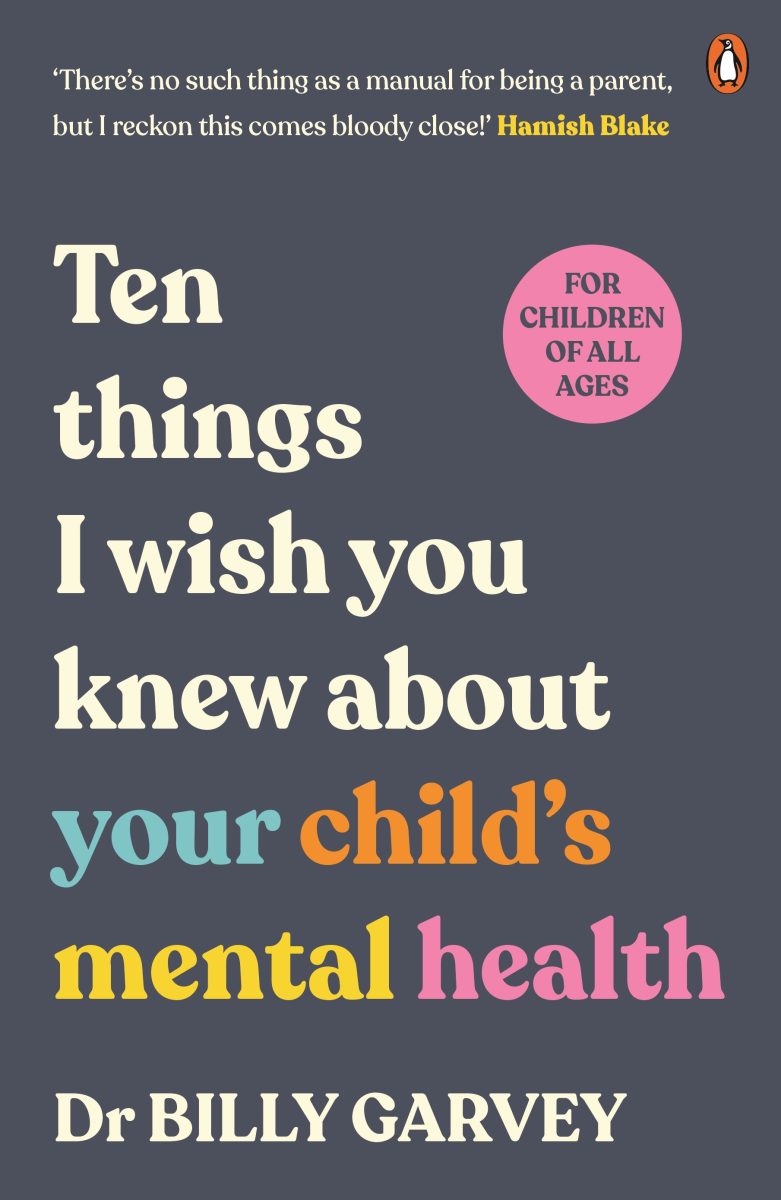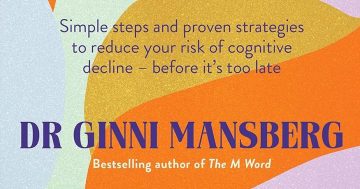
Dr Billy Garvey says every parent wants their child to have good mental health, and offers relevant advice in his book. Photo: Supplied.
One must take note of a heartfelt admission from Dr Billy Garvey, a developmental paediatrician with more than two decades of experience working with children: “… the majority of adult mental illness begins in childhood, usually before the teenage years.”
He wants to reassure parents there is no such thing as a ‘’bad’’ child and that much of what he tells families in his clinic is based on the principles he outlines in his book.
“Our society is drowning in mental anguish, and so much of the burden in our daily lives seems to be a fate we must accept,” Dr Garvey says. “Suicide is one of the leading causes of death for teenagers and our adult peers.
“It devastates families and broader communities in a way that few other fatal illnesses do. I believe this is because such shattering loss is actually preventable, and this knowledge compounds such needless suffering.”
Adult mental health services worldwide tend to be reserved for those with resources or severe and chronic illness.
“Without appropriate support, the adversity of these early stages of mental illness can have lifelong consequences for an individual’s self-esteem, relationships and daily functioning. But no child, regardless of their environment or temperament, is destined to experience mental illness.”
Every parent wants their child to have good mental health. Children of all ages are grappling with anxiety, depression, low self-esteem and behavioural issues, and it can take years to see an expert who can help them.
Regardless of whether you have a young child or a teen on the brink of adulthood, by understanding the foundations of good mental health, you will be able to help them thrive at any stage in their development.
Dr Garvey shares some invaluable lessons that he has learned from the teachers in his life. The chapters in his book elaborate on the need for attachment since this is where your child’s mental health starts; behaviour; social skills; emotional development; self-esteem; anxiety; respect; depression; there is no such thing as ‘’bad’’ kids; and ‘’you’’ because your mental health is important too.
Many of us feel lost as parents, wishing there was a guidebook to help navigate the rugged terrain of raising our children to be happy, healthy individuals. This is what this book is aimed at: developing our skills as parents and guardians to better face whatever challenges we find in the journey ahead. Also explored are ways to respond to the children’s emotions, including when these reactions have deteriorated into mental illness.
He shares what he has understood about fostering strong mental wellbeing in children to give them the best chance of avoiding future mental illness.
“We can meet children at their current level of functioning, lower our expectations and gently help them to further develop their skills in the particular area they are struggling with.”
While many years at university have provided him with a scientific lens to help, it’s the honesty and trust of the people he has met in the clinic that have given an insight into the biggest challenges, fears and regrets our kids experience. Though research has guided his approach, of course, Dr Garvey has gained an understanding from many people, but it’s the children who have taught him what works.
The founder of Guiding Growing Minds, a social enterprise that aims to give all children the opportunity to reach their potential and live rich and meaningful lives, has also been on another quest.
“When I meet a child in the clinic, I always wish I had helped them much sooner in their struggle.”
With that thought in mind, Dr Garvey applied for a Churchill Fellowship in 2019 to explore how to better support parents in guiding their children’s development and mental health.
“I still remember the final interview. A well-dressed man in the middle of the group abruptly asked the first question: ‘We’ve read your application and, frankly, I don’t believe there is any evidence that how we raise our children impacts their mental health. Please explain yourself.”
According to the host of the Pop Culture Parenting podcast, this book is “an extended version of my answer to that question. Given that I was awarded the scholarship, I assume they found the answer I gave helpful. I hope you do too.”
Ten Things I Wish You Knew About Your Child’s Mental Health, by Dr Billy Garvey, Penguin Life, $36.99











